Sheep farmers and shearing contractors have been busy shearing sheep since early May. This practice takes place annually and is an essential animal welfare necessity. It is a tough task that in the past was well rewarded, with wool sales an important income source for the farm.
The rise of lower-cost manmade synthetic materials, many of which are manufactured using fossil fuels and chemicals, has seen demand for wool collapse and, in turn, reduced it to a near worthless product.
The International Wool Textile Organisation (IWTO) states that wool has a market share of just 1.3% of all textile fibres and 5% within the recycled textile fibre market.
Shearing
Instead of wool adding value to farm income, the process of shearing now represents a significant cost to a farmer’s business.
For example, the average weight of a fleece of wool is about 2.4kg to 2.5kg.
Sheep farmers are currently receiving just 20c/kg for lowland wool giving a value of 48c per animal or €48 on 100 sheep.
If we take a cost of €2.50 per head to shear, it will cost a farmer over €200 to shear their ewes.
Wonderful values
This is a shame given that we hear every day about the huge challenges of climate change, yet we have a product that has wonderful unique values as summarised below.
Wool is 100% natural and grown year-round on sheep. It is an important part of the carbon cycle with organic carbon stored in forage eaten by sheep and transferred in to the fleece of sheep. The IWTO estimates that 50% of the weight of wool is pure organic carbon. Wool is also 100% biodegradable and will break down over a matter of months or years in soil or water. Wool contains other nutrients such as nitrogen and sulphur and will enhance the fertility of soil.Wool is naturally flame-resistant. This unique characteristic comes from its high nitrogen and water content. Wool can be ignited but it typically does not support a flame and the IWTO explains that wool will swell when heated, forming an insulating layer that helps prevent the spread of flames. Wool is naturally breathable and is capable of absorbing large quantities of moisture and then release it back in to the air via evaporation. It also reacts to temperature changes and is an excellent insulator that helps to hold heat when the weather is cold and keeps you cool at higher temperatures. Wool products tend to be washed less frequently and are generally used or worn for longer than other textile fibres enhancing its environmental credentials. 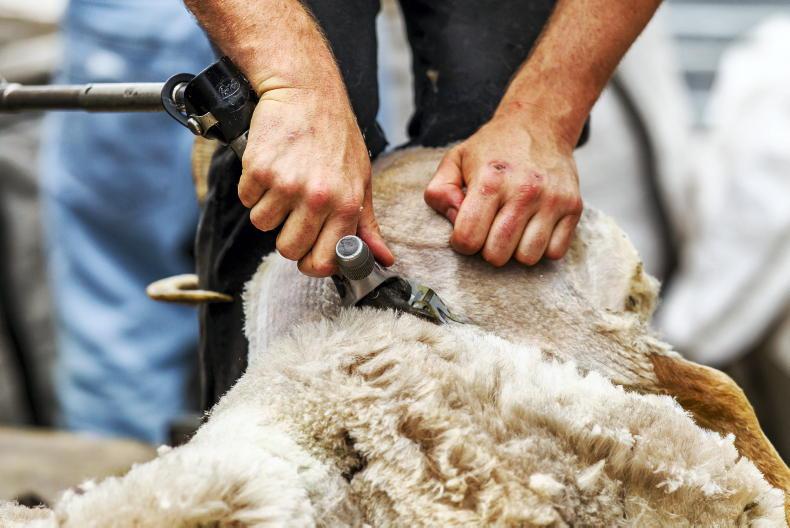
Merino wool is regarded as the highest-value wool. There are farms in Australia and New Zealand where sheep are retained for the value of their wool.
While values have fallen worldwide, wool from Merino sheep is still capable of attracting a premium with prices currently at AU$14 (€9.54/kg).
The IWTO lists Australia as the main producer of greasy wool worldwide (Figure 1). This is despite it not having the largest sheep flock and it reflects the country’s strong traditions on wool production.
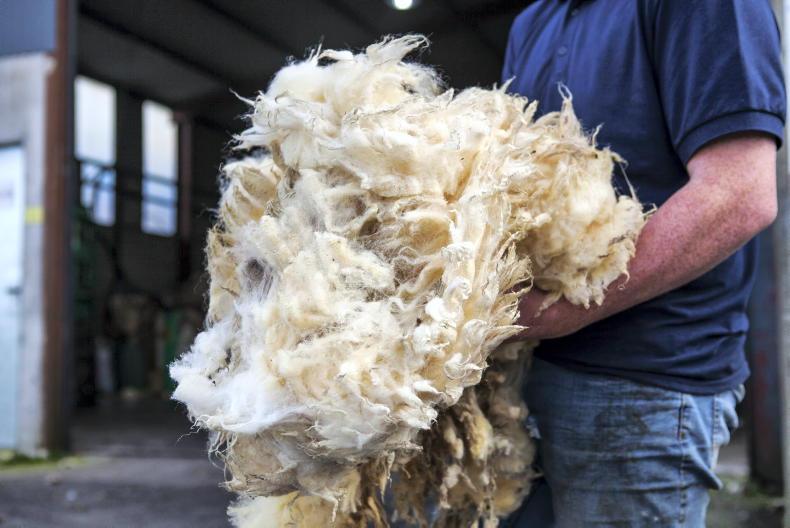
Sheep farmers and shearing contractors have been busy shearing sheep since early May. This practice takes place annually and is an essential animal welfare necessity. It is a tough task that in the past was well rewarded, with wool sales an important income source for the farm.
The rise of lower-cost manmade synthetic materials, many of which are manufactured using fossil fuels and chemicals, has seen demand for wool collapse and, in turn, reduced it to a near worthless product.
The International Wool Textile Organisation (IWTO) states that wool has a market share of just 1.3% of all textile fibres and 5% within the recycled textile fibre market.
Shearing
Instead of wool adding value to farm income, the process of shearing now represents a significant cost to a farmer’s business.
For example, the average weight of a fleece of wool is about 2.4kg to 2.5kg.
Sheep farmers are currently receiving just 20c/kg for lowland wool giving a value of 48c per animal or €48 on 100 sheep.
If we take a cost of €2.50 per head to shear, it will cost a farmer over €200 to shear their ewes.
Wonderful values
This is a shame given that we hear every day about the huge challenges of climate change, yet we have a product that has wonderful unique values as summarised below.
Wool is 100% natural and grown year-round on sheep. It is an important part of the carbon cycle with organic carbon stored in forage eaten by sheep and transferred in to the fleece of sheep. The IWTO estimates that 50% of the weight of wool is pure organic carbon. Wool is also 100% biodegradable and will break down over a matter of months or years in soil or water. Wool contains other nutrients such as nitrogen and sulphur and will enhance the fertility of soil.Wool is naturally flame-resistant. This unique characteristic comes from its high nitrogen and water content. Wool can be ignited but it typically does not support a flame and the IWTO explains that wool will swell when heated, forming an insulating layer that helps prevent the spread of flames. Wool is naturally breathable and is capable of absorbing large quantities of moisture and then release it back in to the air via evaporation. It also reacts to temperature changes and is an excellent insulator that helps to hold heat when the weather is cold and keeps you cool at higher temperatures. Wool products tend to be washed less frequently and are generally used or worn for longer than other textile fibres enhancing its environmental credentials. 
Merino wool is regarded as the highest-value wool. There are farms in Australia and New Zealand where sheep are retained for the value of their wool.
While values have fallen worldwide, wool from Merino sheep is still capable of attracting a premium with prices currently at AU$14 (€9.54/kg).
The IWTO lists Australia as the main producer of greasy wool worldwide (Figure 1). This is despite it not having the largest sheep flock and it reflects the country’s strong traditions on wool production.










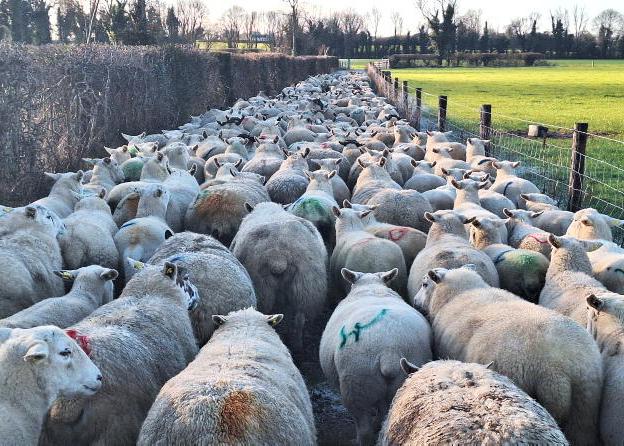
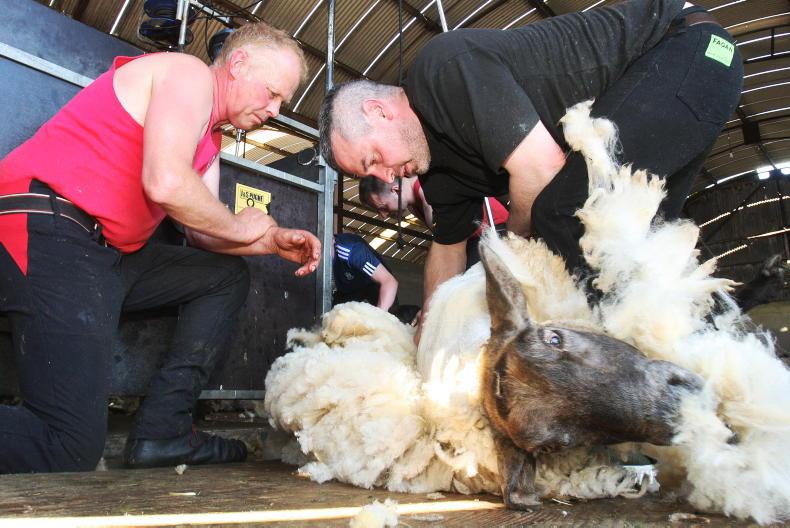
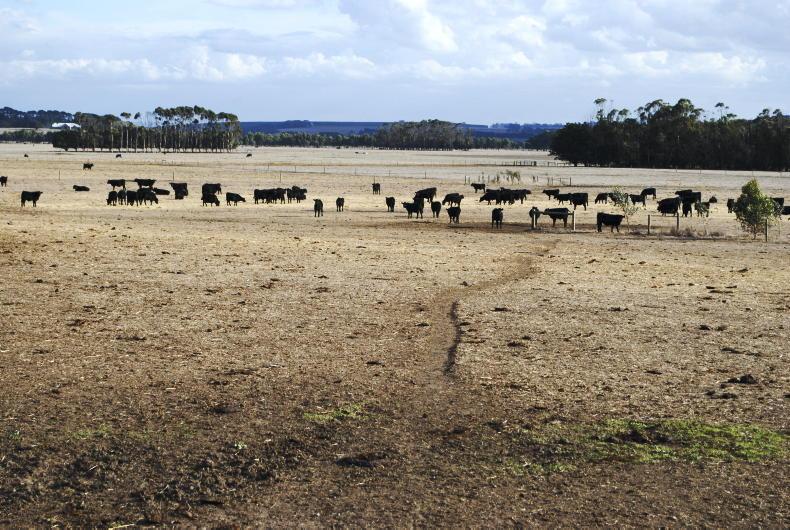
SHARING OPTIONS